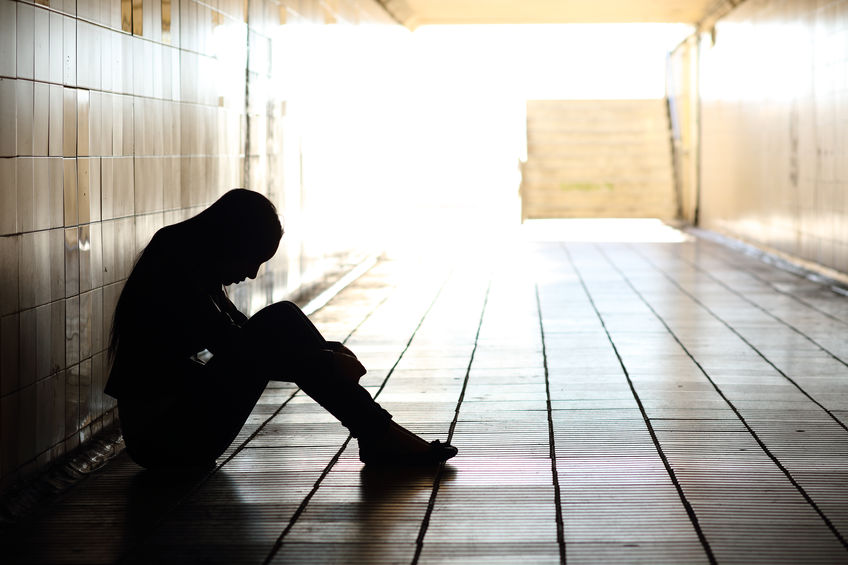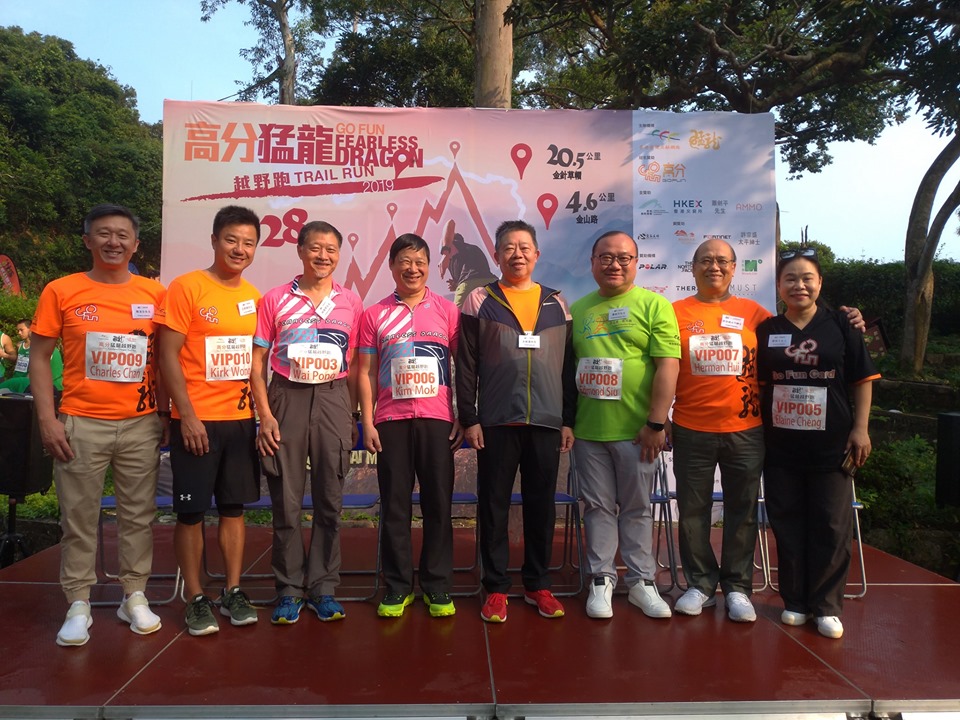|
  | |
Tel: 2511 8211 / Fax: 2511 8142 / SMS: 6972566616538 |
News from the EOC
Issue 219 | 10 October 2019 |
中文版

Hongkongers’ mental health made a nosedive and once again scored below acceptable levels on the World Health Organization’s Five Well-Being Index (WHO-5) this year, according to the Hong Kong Mental Health Index published on 9 October 2019.
Conducted for the eighth year in a row, the survey was part of the annual awareness campaign “Mental Health Month”, jointly organised every October by rehabilitation groups and public bodies, including the EOC.
Respondents were presented with five statements from the WHO-5 questionnaire and asked to rate, for example, how often they felt cheerful, calm, active, fresh and interested in things in their daily life over the two weeks prior to the survey. The findings, based on a sample of 1,009 citizens aged 15 or above, were alarming. On average, Hongkongers scored 46.41 out of 100, down from 50.2 in 2018 and plunging further below the acceptable level generally agreed upon by academics, i.e. 52.
Certain groups received significantly lower scores, such as men, people aged 15 to 34, and those between jobs or without children. Some causes of negativity seemed to be shared. Over 40% (41.1%) of the respondents said social controversies had an extremely or fairly negative impact on their mental health, while 44.6% of those who were students said the same about schoolwork.
To gather empirical data for strengthening public education and support measures, respondents were also asked how much they agreed with the myths and labels surrounding suicide. The results show that 63.9% believed it is irresponsible to end one’s life; nearly 40% thought there is no way to prevent suicidal behaviour; and more than one-third agreed that when a person talks about committing suicide, he or she wouldn’t actually do it. Perhaps most worryingly of all, over 50% of the respondents said they wouldn’t let others know if they had suicidal thoughts, and 21.2% knew a relative or friend who had attempted suicide.
The report recommends a multi-pronged approach to improving Hongkongers’ mental wellness, one that encompasses stronger training for teachers and social workers, tailored support for different social groups (e.g. students and the elderly), as well as a cross-sector effort to create a society that respects differences and engages in genuine dialogue.
Like “Mental Health Month” on Facebook
2
*********************************************

Mr Ricky CHU Man-kin, Chairperson of the EOC, published an article in
Sing Tao Daily,
the
Hong Kong Economic Journal and
Hong Kong Free Press on 2, 4 and 8 October 2019 respectively, following the recent release of
Closing the Gap, a report by the Commission’s Working Group on Education for Ethnic Minorities. Over the course of 15 months since January 2018, the Working Group met with ethnic minority (EM) students, parents, teachers, NGOs and employers, among other stakeholders, to identify ways to level the playing field in education for EM students.
Indeed, entrenched language barriers, which stem from struggles with learning the Chinese language, continue to bog down academic and career pursuits for EM students. In fact, data from the Government reveals that one in every five ethnic minority households were living below the poverty line in 2016, and an overwhelming majority of South Asians worked in low-paid elementary positions. Education, supposedly a ticket to gainful employment, has failed to deliver empowerment.
Mr Chu wrote, “We are calling for immediate action in three priority areas, namely: plugging gaps in the current system to provide a complete Chinese-as-a-second-language curriculum for EM students; strengthening training policies to equip teachers with both the skill set and mindset needed to educate second language learners; and reviewing all the existing Chinese examination options and structuring them into a qualification ladder, where various levels of Chinese proficiency could be better reflected and recognised.”
The EOC has submitted the report to the Government in response to the public consultation on the upcoming Policy Address. “We earnestly hope that the Government would adopt our recommendations. After all, the younger generation is the pillar of our society tomorrow. Stepping up our commitment to resolving the challenges facing EM students would help them unleash their potential and all of us build an inclusive society with equal opportunities,” said Mr Chu.
Read the article
Download the report
3
*********************************************

Prejudice and bias come in different forms. Some are overt and manifest themselves in blatantly discriminatory conduct; others are more implicit and subtle, shaping our deep-seated attitudes and values. While the law functions to address the former, the latter could equally subjugate marginalised communities and perpetuate inequality.
Published on 24 September 2019, the EOC-funded study, “Doing Equality Consciously: Understanding Unconscious Bias and its Role and Implications in the Achievement of Equality in Hong Kong and Asia”, sought to tackle this complex yet pressing issue. The project was housed at The University of Hong Kong’s Women’s Studies Research Centre (WSRC) and the Faculty of Law’s Centre for Comparative and Public Law (CCPL), and aimed to look into the types and extent of unconscious bias and the potential for intervention in different settings.
The implicit association test (IAT) was used to assess unconscious biases among 112 participants from secondary schools, universities, and the corporate sector. An intervention was then designed and implemented to test the effects of ameliorative measures on the respondents’ bias levels.
There was clear evidence of widespread racial and gender stereotypes across different participant groups, with racial biases being stronger than gender-based ones. Intervention was effective in reducing gender-based biases but not racial ones, reflecting that the latter is more ingrained and requires more complex approaches to address it. Significantly, exposure to social group networks was found to impact the effectiveness of intervention. This indicates a need for more tailored and context-specific intervention tools.
The report offers several recommendations, including incorporating implicit bias awareness into early childhood education, and institutionalising training in governmental, educational, corporate, health, civil society, legal, and social welfare organisations. To read the full report, please click the link below.
Read the executive summary
Download the report
4
*********************************************

Eight hundred sports enthusiasts, including 70 persons with disabilities (PWDs), got together on 28 September 2019 to take part in Go Fun Fearless Dragon Trail Run, organised by Hong Kong Network for the Promotion of Inclusive Society. Entering its second edition this year, the charity run followed the Maclehose Trail (Stages 6-8), crossing Needle Hill, Grass Hill and Tai Mo Shan. Besides donating for the cause of social inclusion, participants had a chance to relish in views of valley reservoirs and stunning scenery from above the hills.
EOC Chairperson, Mr Ricky CHU Man-kin attended as the officiating guest and joined the 4.6km race. “To ensure that PWDs have equal access to all areas of social life, technological advances are not enough; a caring and inclusive community is what truly matters,” said Mr Chu at the kick-off ceremony. “With or without disability, we all have our dreams and aspirations, and none of us wants to be left alone when running towards our goals. I wish for the day when all members of society can compete and realise their potential on an equal basis.”
More about Go Fun Fearless Dragon Trail Run
Visit the event’s Facebook page
*********************************************
Visit our website or download the EOC mobile app (Apple App Store / Google Play) to stay updated on the EOC’s work and positions, and to review our press releases and calendar training. Also, stay tuned on other equal opportunities issues and community initiatives by visiting our community resources and community events pages for information from our community partners, including publications, survey reports, publicity campaigns, and upcoming conferences.


 Hongkongers’ mental health made a nosedive and once again scored below acceptable levels on the World Health Organization’s Five Well-Being Index (WHO-5) this year, according to the Hong Kong Mental Health Index published on 9 October 2019.
Hongkongers’ mental health made a nosedive and once again scored below acceptable levels on the World Health Organization’s Five Well-Being Index (WHO-5) this year, according to the Hong Kong Mental Health Index published on 9 October 2019. Mr Ricky CHU Man-kin, Chairperson of the EOC, published an article in Sing Tao Daily, the Hong Kong Economic Journal and Hong Kong Free Press on 2, 4 and 8 October 2019 respectively, following the recent release of Closing the Gap, a report by the Commission’s Working Group on Education for Ethnic Minorities. Over the course of 15 months since January 2018, the Working Group met with ethnic minority (EM) students, parents, teachers, NGOs and employers, among other stakeholders, to identify ways to level the playing field in education for EM students.
Mr Ricky CHU Man-kin, Chairperson of the EOC, published an article in Sing Tao Daily, the Hong Kong Economic Journal and Hong Kong Free Press on 2, 4 and 8 October 2019 respectively, following the recent release of Closing the Gap, a report by the Commission’s Working Group on Education for Ethnic Minorities. Over the course of 15 months since January 2018, the Working Group met with ethnic minority (EM) students, parents, teachers, NGOs and employers, among other stakeholders, to identify ways to level the playing field in education for EM students. Prejudice and bias come in different forms. Some are overt and manifest themselves in blatantly discriminatory conduct; others are more implicit and subtle, shaping our deep-seated attitudes and values. While the law functions to address the former, the latter could equally subjugate marginalised communities and perpetuate inequality.
Prejudice and bias come in different forms. Some are overt and manifest themselves in blatantly discriminatory conduct; others are more implicit and subtle, shaping our deep-seated attitudes and values. While the law functions to address the former, the latter could equally subjugate marginalised communities and perpetuate inequality. Eight hundred sports enthusiasts, including 70 persons with disabilities (PWDs), got together on 28 September 2019 to take part in Go Fun Fearless Dragon Trail Run, organised by Hong Kong Network for the Promotion of Inclusive Society. Entering its second edition this year, the charity run followed the Maclehose Trail (Stages 6-8), crossing Needle Hill, Grass Hill and Tai Mo Shan. Besides donating for the cause of social inclusion, participants had a chance to relish in views of valley reservoirs and stunning scenery from above the hills.
Eight hundred sports enthusiasts, including 70 persons with disabilities (PWDs), got together on 28 September 2019 to take part in Go Fun Fearless Dragon Trail Run, organised by Hong Kong Network for the Promotion of Inclusive Society. Entering its second edition this year, the charity run followed the Maclehose Trail (Stages 6-8), crossing Needle Hill, Grass Hill and Tai Mo Shan. Besides donating for the cause of social inclusion, participants had a chance to relish in views of valley reservoirs and stunning scenery from above the hills.